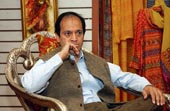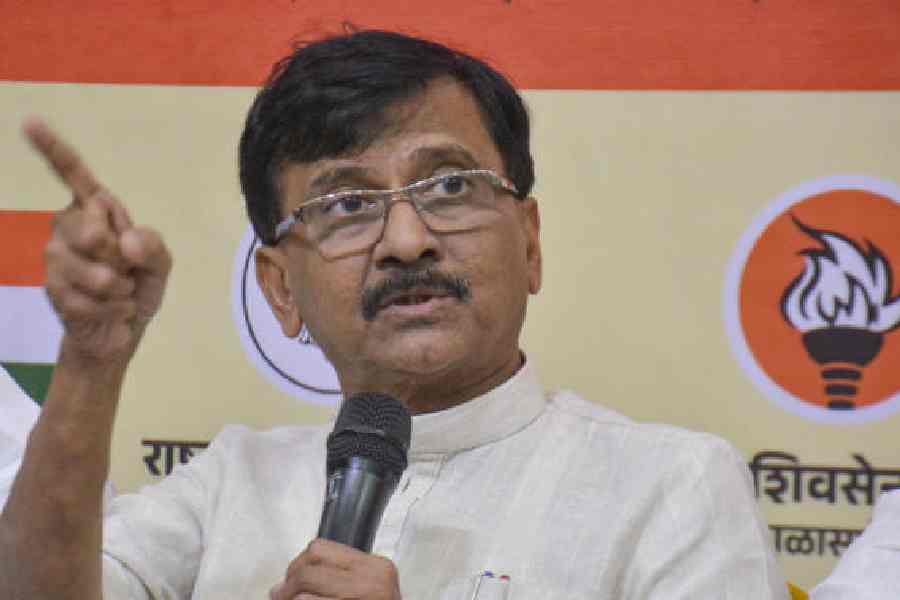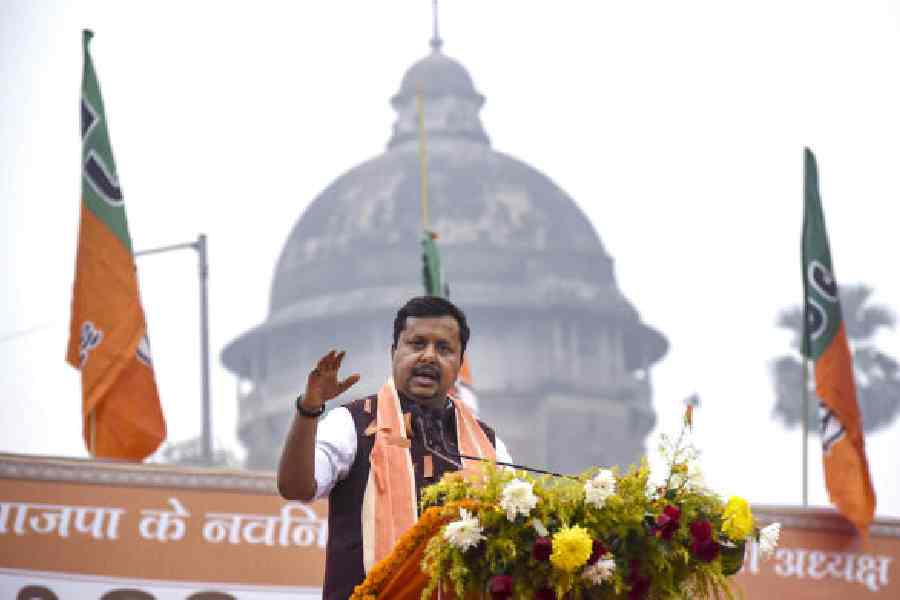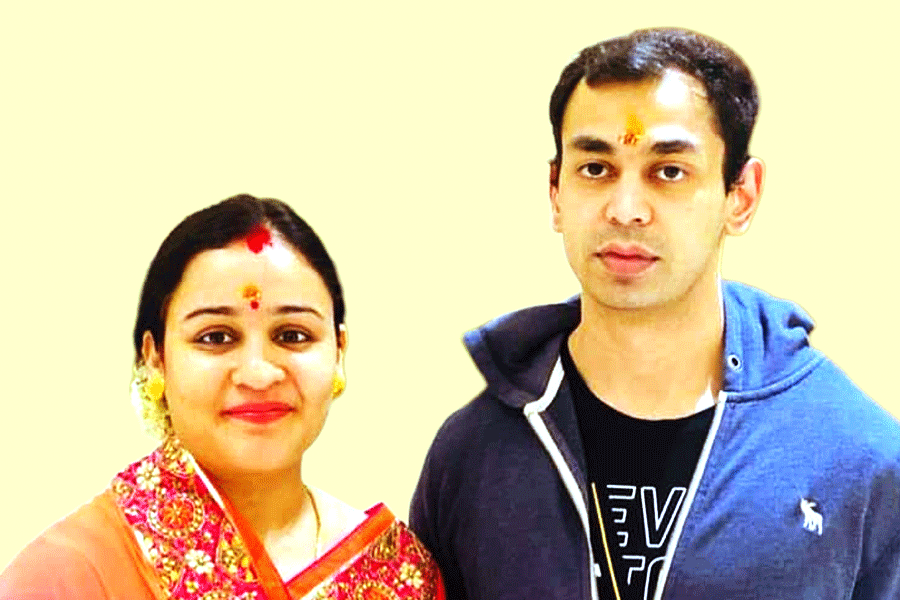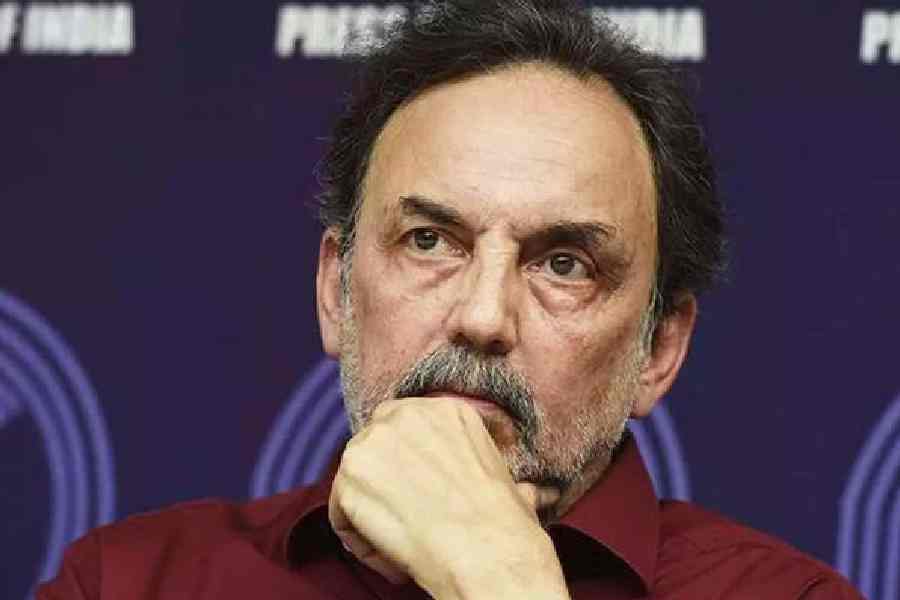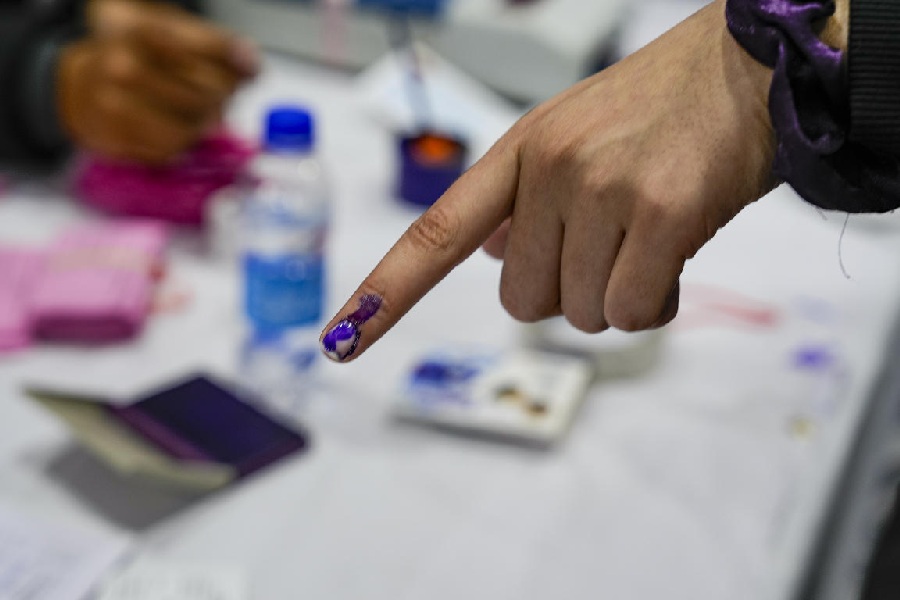 |
| Seth in the city on Sunday. Picture by Pabitra Das |
He hates being late. After being held up for 15 minutes ? due to the endless phone calls ever since he checked into a city hotel on Sunday afternoon ? Vikram Seth smiles, and apologises profusely.
?It?s frustrating for me to be in Calcutta for only a couple of days. My Mama (maternal uncle) lives here and I will be visiting him and also some friends,? says Seth, hours after stepping into the city he was born in, 53 years ago, (?in Elgin Nursing Home? it doesn?t exist now?).
?But Calcutta seems a little less familiar, with this flyover which spirited me from Park Circus to the Race Course,? he adds with a smile.
This time, it?s the whirlwind promotional tour of his newly-released book, Two Lives, that has brought him here. Fusing biography and memoir, Two Lives is about Seth?s great uncle Shanti and his German Jew wife Henny, a couple he was closely attached to. The book has taken years to grow, during which Seth dug up their past, their escape from Nazi Germany, their struggle to start life in England.
And the third life (his own) that entwines his aunt and uncle in the book? ?Well, you can call it adhai jiban (two-and-a-half lives),? he laughs, lapsing into Bengali. That familiarity he owes to mother Leila Seth, who hails from Khulna, studied at Calcutta University and ?speaks a little better Bengali than she speaks Hindi?.
Researching and writing the book was ?difficult? for someone who is so close to his family. ?Friends and family form the centre of my emotional life? When I thought of writing the book, I didn?t really know how much I would be affected by it,? says Seth, admitting to a ?sense of discomfiture? for having made aunt Henny?s private letters public.
The ?excuse rather than a justification? for Seth is that he got ?vicarious permission? since his uncle was executor of her letters. Also, ?in a biography one should describe in full and Henny emerges very well from her letters?. And then there?s the history of the period. ?It gives an insight into the psychological and moral choice that people have had to make at that time.?
Documenting the two lives, Seth denies having at all fictionalised the characters. ?As a biographer, you can select or analyse facts. In Two Lives, I am also a memoirist. It?s also a book about writing this book.?
During the gestation period, Seth says he needs a lot of time to himself. He writes early in the morning ? from 2 am or 3 am when the house is quiet ? preferably in bed, on laptop or in long hand. If he is jetlagged, he tries to ?preserve? it to continue writing in odd hours. Once the characters are clear in his mind, the author of The Golden Gate and An Equal Music writes anytime he wants to.
?I am not disciplined, I am obsessional...?
Though he has explored various literary genres ? novel, verse novel, travelogue and biography ? it?s poetry he wants to go back to. ?People don?t seem to know much about it (the fact that he writes poetry),? he laughs, then muses: ?But I hope to write more poetry.?
Amidst the madness of the five-city tour to promote the Penguin book, Seth is reading Ramchandra Guha?s The Last Liberal. ?While writing a book, I never read anything that can influence the structure of my writing. For instance, I didn?t read any Indian novel while writing A Suitable Boy? Otherwise, I read omnivorously. And also watch stupid programmes on the TV to relax,? he chuckles.

